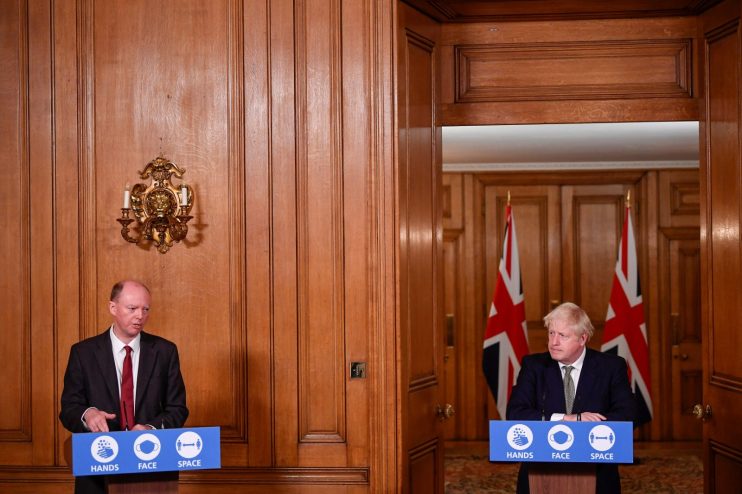How ‘following the science’ has let our country down

If I were to be diagnosed with a malignant tumour, I would expect my doctors to lay out for me the alternative treatment options, how each would affect my quality of life, its impact on survival or potential cure and, as far as is knowable, all the other potential costs and benefits.
I would listen to them carefully and with respect. But the eventual decision would be mine and mine alone, based on my personal perspective of all the trade-offs involved.
In other words, “the science” cannot make the decision for me. It cannot tell me what to do. It can only outline within certain bounds of uncertainty the potential outcomes of different choices that I would make. To use the jargon, science has no normative content.
As everyone struggles to deal with this pandemic, the idea of “following the science” has gained traction. It is fundamentally mistaken.
As with my decision about which treatment, if any, to opt for, public policy must balance many factors of which the scientific/medical perspective represents one, but only one, important input.
In a democracy, it is the role of our elected governments to make the necessary and often impossibly difficult trade-offs. Only the government has the legitimacy to decide public policy.
We live in a world where science and scientists rightly still maintain a high degree of respect and credibility among much of the population. This gives them power. And with power comes responsibility.
One of those responsibilities is the recognition that science informs but cannot decide. Scientists should therefore exercise significant restraint and avoid making public policy pronouncements. They do not have the know-how, nor the necessary information spanning all aspects of social and economic life, nor the democratic legitimacy to make public policy.
Yet, throughout this catastrophic pandemic we have seen many scientists using the platform and credibility given to them by their profession to make frequent public policy pronouncements — and all too often conflicting ones. The media has amplified such views, some seemingly taking delight in publicising either the most sensationalist utterances or those that are particularly critical of government policy. None of this has served us well.
There is, however, another side to this story.
Some years ago, at a closed meeting in a House of Commons meeting room, I made these very same points. I argued that public policy decisions are properly political and cannot be determined by “the science”. One senior politician present responded: “But it’s much easier for me to be able to say that I’m following the science than to say that I’ve made a political decision.”
From this folie à deux emerges the now pervasive and misleading fiction of “following the science”.
At the start of this pandemic, such a stance, however false, may have served to calm nerves and give the impression of knowledgeable intervention. But things have since become more difficult — and more emotive. Every day brings more information while also making it abundantly clear just how much we don’t yet know. No single public policy approach has shown itself to be clearly superior to any other, and we have all become aware of the very real difficulties involved in converting policy decisions into effective implementation.
As we appear to be sliding inexorably towards a state of panic rather than control, opinions continue to diverge among scientists, as well as within and between governments.
The result is a deafening cacophony that fuels public confusion, fear and anger, while doing little to dampen the progress of the pandemic.
It is time for a reset. Politicians need to make it clear that it is their responsibility — and theirs alone — to make the difficult trade-offs that underpin policy decisions. They cannot forever hide behind “the science”.
Honesty about the high levels of uncertainty and recognition that a government made up of human beings like the rest of us who can only do its best in incredibly difficult circumstances is much more likely to command public support than empty chest-thumping statements about world-beating this and best-in-class that — statements that inevitably lead to disappointment.
Scientists, for their part, must understand that their responsibility towards the country does not lie in going beyond their competence to make public policy recommendations that they simply do not have the know-how or the legitimacy to offer.
Share empirical information, by all means. Explain what is known about the science and, maybe more importantly, just how much uncertainty still surrounds it — especially when it comes to modeling and projections. But stick to the limits of legitimacy.
Sadly, this may all be too much to ask.
Main image credit: Getty